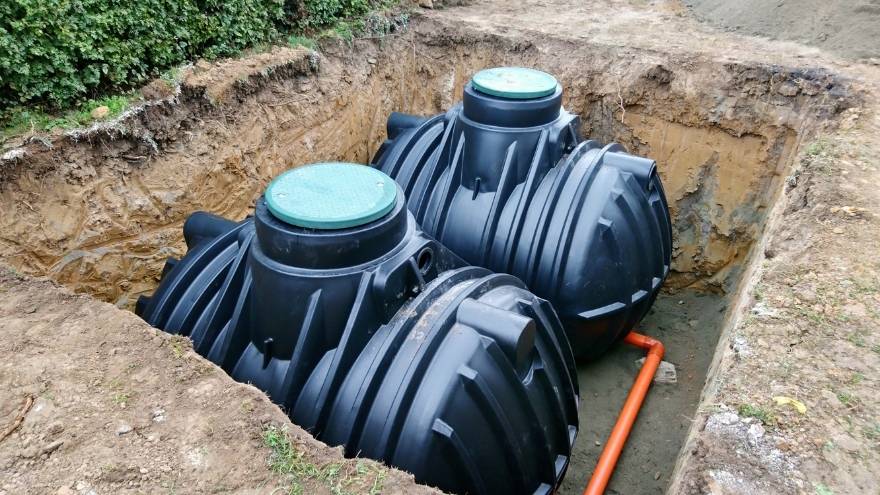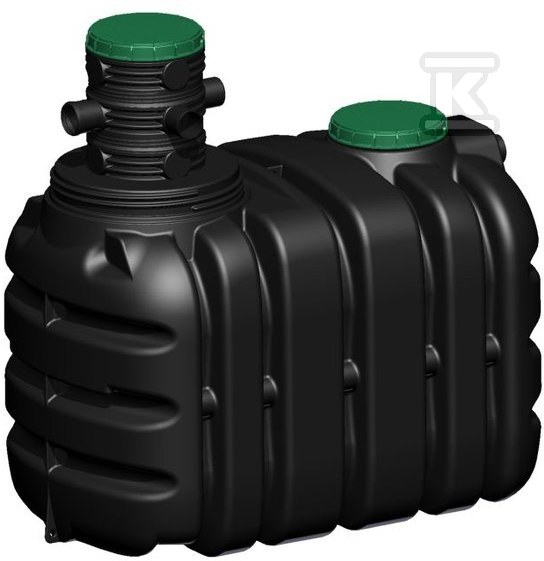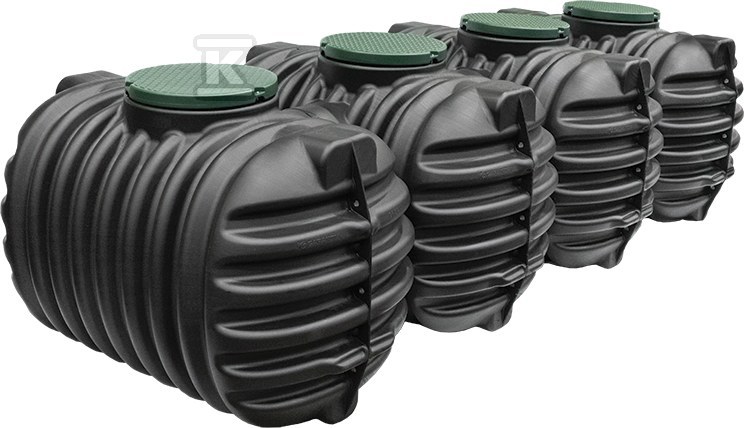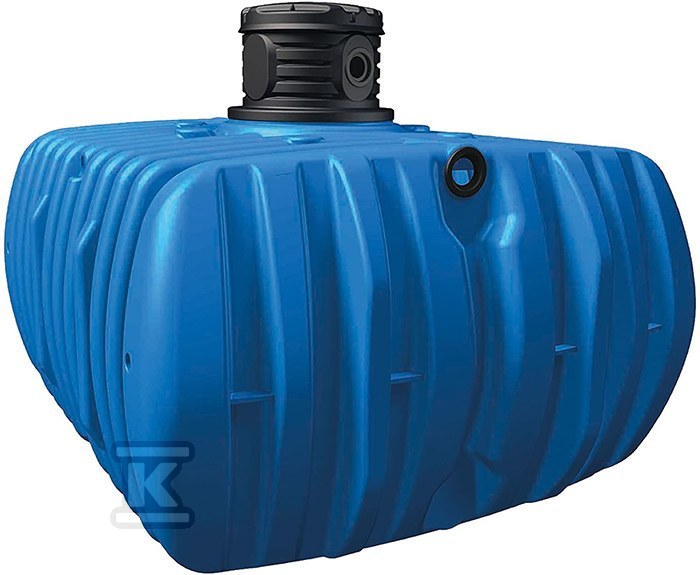There are numerous financial and ecological benefits to collecting and thoughtfully managing rainwater. Collecting rainwater allows you to protect the natural environment and reduce water consumption from the water supply network, which translates into real savings in the budget: home, company or city. Thanks to modern installation solutions, the use of rainwater is not limited to watering plants today. How to effectively use the potential of rainwater - not only in the household? The answer to this and many other questions about the rainwater sewage system can be found in the article below.

Check out the rainwater tanks at the Onninen wholesaler
Quality of rainwater streams by origin
Rainwater is characterized by different quality parameters than tap water (drinking water). Therefore, the investor does not have complete freedom in the management of collected rainwater. The quality of rainwater affects the possibilities of its use. This is primarily about the risks associated with the use of rainwater of different quality - more or less polluted. In most cases, rainwater can be safely used for garden irrigation, flushing toilets, washing clothes, filling swimming pools (in combination with dedicated pool chemicals) and ponds, washing cars and machines, and for various cleaning tasks inside and outside buildings. This allows for a significant reduction in the consumption of drinking water.
 The level of pollution of rainwater depends primarily on the location and development of the area, as well as on seasonal changes in the amount of precipitation, the length of rainless periods or the season (e.g. in winter there is an increase in salinity). The highest quality, i.e. considered free from pollution, is rainwater flowing from green areas and from unpolluted roofs and paved areas.
The level of pollution of rainwater depends primarily on the location and development of the area, as well as on seasonal changes in the amount of precipitation, the length of rainless periods or the season (e.g. in winter there is an increase in salinity). The highest quality, i.e. considered free from pollution, is rainwater flowing from green areas and from unpolluted roofs and paved areas.
Water from local roads (e.g. housing estates) is of slightly lower quality. The third and fourth quality groups are rainwater flowing from urban areas and from roads and industrial zones. Such water, due to its high content of pollutants, resembles… sewage in terms of parameters. Therefore, rainwater tanks are mainly supplied by water flowing from the roof and, in certain conditions, from other hardened surfaces.
Rainwater collection
The rainwater management system consists of several elements, the most important of which are:
- a tank where rainwater is collected,
- pump device – this is the heart of the entire system, enabling the delivery of water from the tank to the appropriate receivers in the building or garden.
 Rainwater tanks are available in many variants, adapted to various needs and possibilities. There are above-ground and underground variants to choose from, plastic structures and (less frequently used) concrete structures. The models of tanks offered also differ in size (capacity) and durability. The size of the tank should be adapted to the individual demand for rainwater and to the location and type of the facility. Determining the optimal tank capacity should be entrusted to a professional company dealing with the design and implementation of rainwater management systems.
Rainwater tanks are available in many variants, adapted to various needs and possibilities. There are above-ground and underground variants to choose from, plastic structures and (less frequently used) concrete structures. The models of tanks offered also differ in size (capacity) and durability. The size of the tank should be adapted to the individual demand for rainwater and to the location and type of the facility. Determining the optimal tank capacity should be entrusted to a professional company dealing with the design and implementation of rainwater management systems.
In order to obtain rainwater with optimal parameters, the installation is equipped with additional accessories, e.g. filter sets. The key to high quality of the water obtained and the efficiency and durability of the system are: compliance with the dates of periodic inspections and regular cleaning/replacement of filters.
Efficient use of rainwater in urban catchments
A catchment area is a land area (forests, fields, meadows and other areas) from which water flows into a reservoir – in this case, a city reservoir. In cities, rainwater is used for many purposes: from filling water holes, fountains and ponds, through cleaning and maintenance of green areas, to industrial processes. Huge amounts of water are used for municipal applications, often daily, so using drinking water instead of free, publicly available rainwater would not only be very expensive, but also not very ecological (and illogical).
 In recent years, Polish cities such as Grudziądz, Kalisz and Lubin have become famous for their extremely ingenious and effective use of rainwater. The problem of flooding has been transformed into innovative solutions in the field of rainwater management.
In recent years, Polish cities such as Grudziądz, Kalisz and Lubin have become famous for their extremely ingenious and effective use of rainwater. The problem of flooding has been transformed into innovative solutions in the field of rainwater management.
We encourage construction companies, sanitary installation designers, hydraulic installers and other professionals to familiarize themselves with our wholesale offer. Our assortment includes all the elements that contribute to the creation of reliable, safe and efficient rainwater management systems: from underground and above-ground tanks, through advanced pumping devices, to various accessories, such as a filter, tap or rainwater collector .